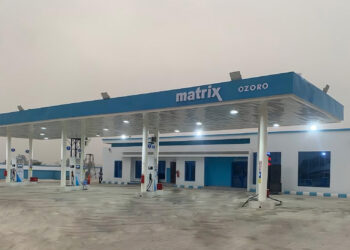Malta issued 33,455 residence permits to foreign nationals in 2024, reflecting a growing demand for skilled workers across various sectors.
This increase in applications relates to the country’s efforts to attract professionals and investors, a trend that is expected to continue into 2025.
The growth in foreign residence permits is a key part of Malta’s strategy to address labour shortages and attract global talent, TravelBiz informs.
Key residency programs contributing to this surge include the Malta Permanent Residence Programme (MPRP), the Malta Residency and Visa Programme (MRVP), and the Nomad Visa Scheme.
Growing need for skilled foreign workers
Malta’s economy is seeing increased demand for skilled foreign workers, particularly in industries such as healthcare, construction, transportation, and food service, where there are labour shortages. Foreign professionals with the required skills are more likely to secure employment in Malta, making it an attractive destination for skilled migration.
Local employers are actively seeking workers to fill roles in these industries, creating new opportunities for foreign nationals.
Key residency programs driving the growth
Malta’s Home Affairs Ministry reports that over 33,400 residence permits were issued in 2024. A large portion of this figure comes from the MPRP, which attracted over 1,500 applicants.
This program generated €46 million for the government’s Consolidated Fund, with €36 million coming from property purchases and €50 million from five-year lease contracts.
The Nomad Residence Permit also saw strong participation, with 1,031 applications. This program continues to draw remote workers who seek a European base with favourable tax policies.
Why Malta Is an attractive option for foreigners
Several factors make Malta an appealing destination for foreign nationals. Located in the heart of the Mediterranean, Malta has strong connectivity to both Europe and North Africa.
Additionally, the country offers residency programs like the MPRP and Nomad Visa, which provide pathways to long-term residence with financial incentives.
Malta’s economy continues to grow, with employment opportunities in key sectors. The country’s high quality of life, warm climate, and strong expatriate community also make it an attractive option for foreign workers.
How to apply for a Malta residence permit
Foreign nationals wishing to relocate to Malta can apply through several different residency programs. These programs cater to different types of applicants, depending on their qualifications and goals.
- Malta Permanent Residence Programme (MPRP): Applicants must either purchase property (minimum €300,000) or sign a rental contract (€10,000 annually). The program also requires a one-time government contribution of €98,000. It is available to non-EU nationals with a stable income and a clean criminal record.
- Nomad Residence Permit: This permit is designed for remote workers who earn at least €2,700 per month. Applicants must prove employment with a foreign company or be self-employed. The permit is renewable for one year and provides access to Schengen travel benefits.
Malta’s growing popularity as a destination for expatriates, skilled professionals, and digital nomads highlights the country’s commitment to attracting global talent.
The rise in residence permits issued in 2024 demonstrates the demand for foreign workers, particularly in industries facing labour shortages.
As Malta continues to offer opportunities for professionals looking to live and work in a connected European country, it remains one of the sought-after choices for foreign nationals seeking residence options.















